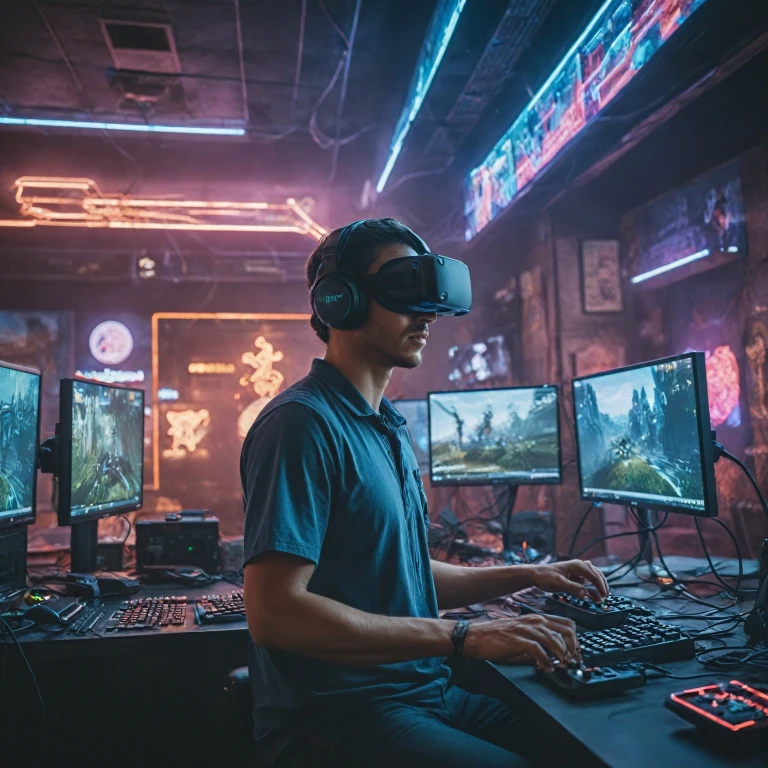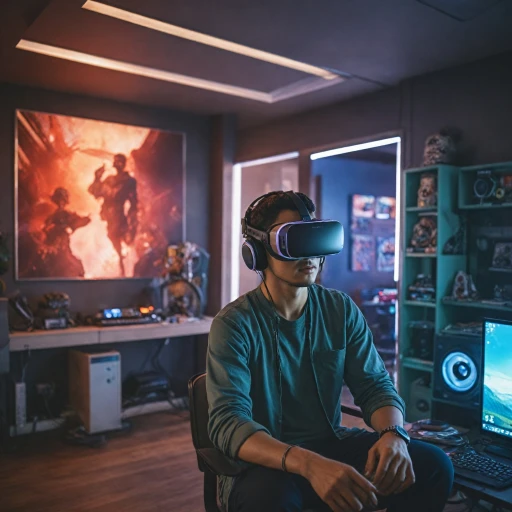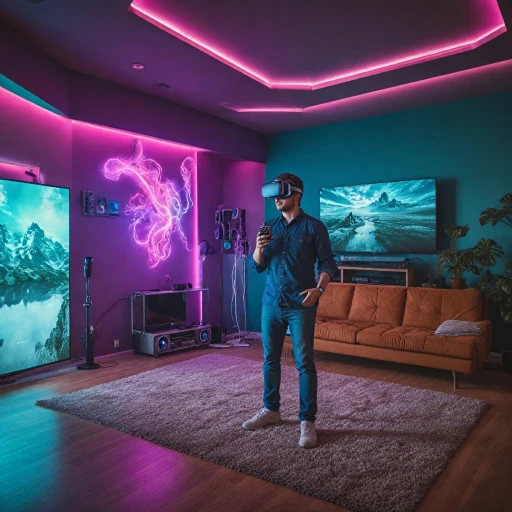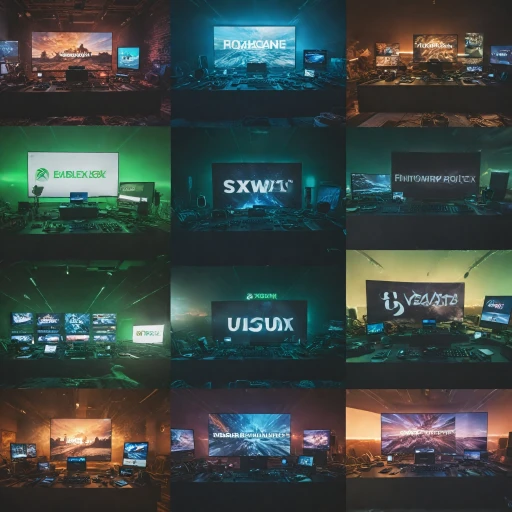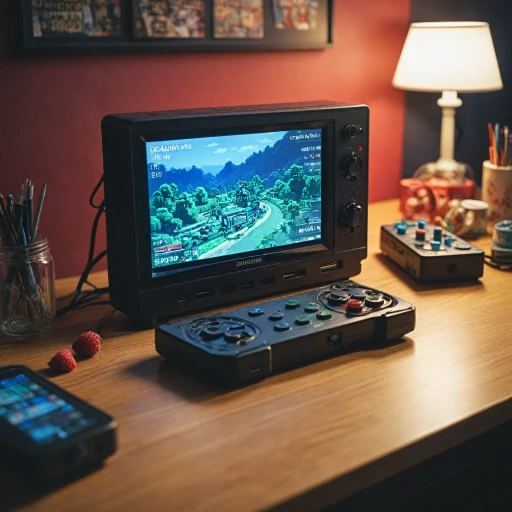
Understanding Xbox's VR Capabilities
Unveiling Xbox's Journey into Virtual Reality
As the gaming industry continues to evolve, virtual reality (VR) has emerged as a groundbreaking frontier. For Xbox enthusiasts, understanding the platform's VR capabilities is crucial. Microsoft has been exploring VR possibilities, but how far has it come in integrating this immersive technology into its gaming ecosystem?
While Xbox doesn't currently have a dedicated VR headset like the Oculus Quest or HTC Vive, it has been making strides in the mixed reality space. The Microsoft Hololens is a standout product, offering a glimpse into the potential for augmented and mixed reality experiences. However, it is primarily aimed at enterprise solutions rather than gaming.
In the realm of gaming, Xbox has yet to release a standalone virtual reality headset. This contrasts with competitors like Sony, which offers the PlayStation VR, and Meta, with its Oculus line, including the popular Oculus Quest and Oculus Rift. These headsets have set the bar high, providing immersive experiences that have captivated gamers worldwide.
Despite the absence of a dedicated Xbox headset, the platform is not entirely devoid of VR experiences. Some games offer compatibility with existing VR headsets, allowing players to explore virtual worlds in unique ways. This compatibility is an exciting prospect for those who already own a VR headset and are looking to expand their gaming horizons on Xbox.
For a deeper dive into the various VR options available for Xbox enthusiasts, you might want to explore this comprehensive guide that discusses the current landscape and potential future developments.
Comparing VR Options Across Gaming Consoles
Evaluating the Current VR Landscape Across Major Platforms
Gaming enthusiasts looking to dive into the world of virtual reality have a cornucopia of VR headsets and platforms to choose from, each offering unique experiences. Comparing these exciting opportunities is crucial to understand the scope of Xbox's potential in the realm of VR.
The Oculus Quest, developed by Meta, has emerged as one of the top standalone virtual reality platforms. With its lightweight form and lack of tethering, it provides an immersive VR experience without the need for a gaming console or PC connection. On the other hand, the HTC Vive offers exceptional room-scale VR with precise tracking that enhances interactions in virtual spaces.
In contrast, Microsoft's journey into VR includes the Windows Mixed Reality headsets, great for those who are both PC enthusiasts and console gamers. While Xbox hasn't fully delved into VR with a dedicated headset system, the promise of integrating future VR capabilities remains a prospect that many gamers are eager to see realized.
For Xbox enthusiasts eager for virtual escapades, there are high hopes surrounding potential integration of the Microsoft Hololens or enhancements in existing VR technologies. As various gaming consoles continue to evolve, each option presents distinct advantages, be it in hardware innovation or software compatibility.
What Xbox may lack in current VR-specific hardware, like an Xbox headset or a headset Xbox might support, it makes up for in the expansive library of games that could eventually embrace virtual reality elements. This aligns Microsoft with other key players in the industry, such as Sony with its PlayStation VR, augmenting competition in the gaming industry.
To further understand Xbox's virtual reality possibilities, visit this helpful guide for Xbox enthusiasts offering enhanced insights into how different VR offerings stack against the Xbox's burgeoning VR potential.
Popular VR Games Compatible with Xbox
Exploring Top VR Game Titles for Xbox
When it comes to virtual reality gaming experiences, Xbox offers a modest but growing catalog for enthusiasts eager to immerse themselves. With the current lineup of VR games compatible with Xbox, players can expect thrilling adventures and engaging interactions. Although Xbox is still catching up with VR-specific titles, the offerings are varied enough to captivate different types of gamers.
- Standout VR Games: While Xbox might not have the same extensive VR game library as platforms dedicated to virtual reality, it provides some noteworthy experiences. Titles like "Minecraft" and "Star Wars: Squadrons" allow players to dive into virtual realms, showcasing enhanced graphics and interactive gameplay on compatible headsets like HTC Vive and Oculus Rift.
- Cross-Platform Experiences: Many VR games available on Xbox cater to cross-platform play, providing opportunities to connect with friends across different devices. Games such as "No Man’s Sky" and "Elite Dangerous" offer such capability, ensuring that Xbox users can engage with the wider gaming community and explore vast virtual worlds together.
- Microsoft's Commitment to VR: Although Xbox’s current VR lineup is limited compared to rival products like Meta’s Oculus Quest, Microsoft's ambition is evident. By investing in arsenals such as Microsoft Hololens and mixed reality technologies, the potential for new games and experiences continues to brighten, making it an evolving product worth monitoring.
While the variety of console games is not as extensive as some standalone virtual reality headsets, Xbox players can still access a selection of intriguing games. Overall, Xbox remains committed to expanding its VR capabilities, aiming to bring more exciting and diverse content to its audience in both the United States and the United Kingdom.
Technical Requirements for VR on Xbox
Hardware and Software Requisites for Xbox VR Experience
Experiencing virtual reality on Xbox consoles requires a blend of compatible hardware and specified software configurations to ensure a seamless interaction. Although Microsoft's current strategy around VR isn't as robust as some would hope, the potential integration with Xbox still attracts interest from enthusiasts.
Here's a look at the key components required for integrating VR with an Xbox console:
- VR-Capable Xbox Console: Not all Xbox models currently support VR capabilities. The recent Xbox Series X|S might offer more future potential due to their advanced processing power and graphical capabilities.
- VR Headset Compatibility: Headsets such as the HTC Vive and Oculus Quest, while popular, are not directly compatible with Xbox consoles. However, Microsoft has its own product lines, like the Microsoft HoloLens and Mixed Reality headsets, which provide insights into the company's capabilities in the virtual space.
- Software Support: Virtual reality requires specialized software, and consoles need native support for VR applications. Microsoft’s plans might evolve with tighter integration of their products, facilitating smoother experiences for users in the United States and the United Kingdom.
- Connectivity: Proper connectivity via high-speed internet and compatible cables is crucial to transmit data between the console and the headset efficiently. For those aiming to minimize latency, wired connections could potentially offer the best results.
From the comparison with other leading products and headsets available in the market, such as Meta’s offerings, it's clear that growth in this area might eventually see more robust support through software updates or new headsets like a potential Xbox headset release.
The merging of Xbox consoles with VR technologies remains an emerging area. As enthusiasts continue to press for advancements, Microsoft acknowledges the demand and the potential within the virtual reality sector. Many gamers hope for future product announcements, possibly incorporating VR to rival the standalone VR systems, like those from Meta or Oculus.

